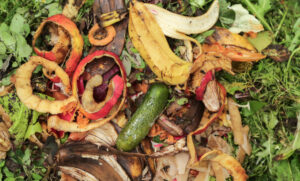Almost 75% of EU food waste remains uncaptured, new report finds

As of 1 January this year, it is mandatory for EU Member States to separately collect bio-waste. But many countries have poor models for collecting it.
Almost 75% of food waste generated in the EU remains uncaptured, resulting in huge volumes emissions from bio-waste in landfills and a huge possible resource of potential compost.
This bio-waste could be a valuable feedstock for the bio-based industries.
Valorising bio-waste can alleviate Europe’s food waste challenge and stimulate sustainable growth, added BIC.
This is particularly relevant as the EU prioritises strategic autonomy, competitiveness, circularity and the green transition.
BIC, an industry association putting circularity, innovation and sustainability at the heart of the European bioeconomy, has teamed up with Zero Waste Europe (ZWE) to produce a second edition of its report identifying the untapped potential to valorise bio-waste in Europe.
Since the first edition four years ago which showed a capture rate of 16% of the theoretical potential, the current figure shows improvement of less than 10%.
The report, which includes country factsheets, provides examples of how the bio-based industries contribute to tackling this waste challenge, as well as citing best practices in waste management at municipal level.
“The bio-based sector is already valorising bio-waste in smart and efficient processes. A number of BIC’s members are companies that use innovative methods to convert bio-waste into high-value bio-based products,” said BIC executive director Dirk Carrez.
“More efficiently capturing bio-waste will allow more of it to be valorised in the bio-based industries - and especially for biomanufacturing,” he added.
“We know that bio-waste remains deprioritised across much of the EU, even despite the new requirement for separate collection. Given the fact that only 26% of food waste is captured across the EU, it's clear much stronger action is needed. There is widespread recognition now of the best practices to collect and treat bio-waste.
"What is evident is the need for revised EU legislation that sets legally binding targets for the quality of bio-waste captured, and a cap on residual waste generation per capita, which would incentivise better bio-waste collection and treatment across the EU-27," said Jack McQuibban, ZWE’s head of local implementation.


















